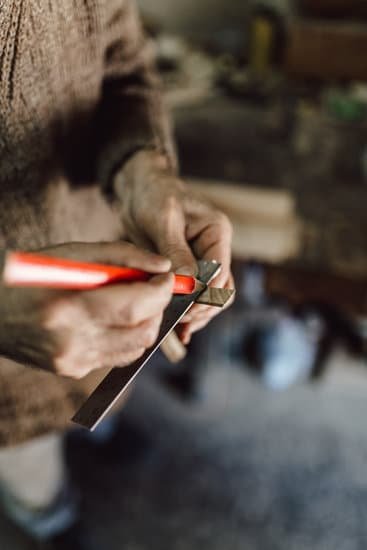Introduction
Japan is one of the world’s largest markets for woodworking tools and supplies. It has a long history of crafting art and wooden tools with an impressive selection of materials. Traditional Japanese craftsmanship, including carpentry, joinery and furniture making, requires only quality hand tools made from durable materials such as quality steel, brass, and hard woods. A wide range of different tools are available in Japan to not just do basic carpentry projects but also intricate detailed carving.
These tools can be obtainable both online through sites like Rakuten Global or brick-and-mortar home improvement stores such as Shinano Kasei or Hibiya Store. Various specialty tool shops are scattered across Japan offering products specifically catered to woodworking enthusiasts; some of these shops even carry antique tools from famous makers that may cost more than a new tool but have a lot more character and often hold great value for collectors looking for hard-to-find items.
The variety available in traditional Japanese woodworking is staggering with everything from chisels to planes, saws to hammers, mallets to nippers ” there are multiple varieties of each type of tool produced by various manufacturers catering to different budgets and specific needs. Newer style power tools are becoming increasingly popular among professional woodworkers as well as newcomers who happens to be on a tight budget or lacks experience with manual tools; they offer convenience while still allowing them access to the same equipment used in professional workshops.
Finding the Best Tools
When searching for the best Japanese woodworking tools, it’s important to understand the differences between what is available at different stores. Doing some research before you shop can help you find the right products for your needs.
First, look into what materials are most commonly used by Japanese craftsmen when choosing which kind of tool to use. Different materials have different qualities and the type of job you need to do will determine what type of material works best. For instance, Japanese craftsmen favor Japanese red oak when they need a strong and durable tool while bamboo is best for delicate tasks such as carving. Take note of these details as you research, as they can be helpful in making sure that you get the highest quality tool for your specific project.
Next, if possible, try to buy from local stores instead of online shops; this way you can get a hands-on look at the tools so you know whether or not it will work for your purposes. Plus knowing how the tools feel can help prevent any accidents that could occur when using them unknowingly. Furthermore, it’s always good to interact with a knowledgeable shop keeper since he or she can provide more detailed information and once-in-a-lifetime advice on which particular brand or product is worth investing in.
Finally, look up reviews online before investing in anything expensive or complex; this is especially true if you are planning on buying something very specialized such as multi-functional jigsaws or other intricate pieces of machinery. Reading reviews from people who have bought and used these items before gives customers insight into which ones work well and where their money should not be wasted on shoddy products or services. Following all these steps means that shoppers should be able to find excellent and affordable Japanese handtools that will last many years with proper maintenance and care.
Refining Your Skills
Buying woodworking tools in Japan can be an interesting and rewarding experience, particularly when you are looking to refine your skills by exploring some of the traditional woodworking techniques which have been practiced there for centuries. In general, Japanese woodworking consists of a selection of hand tools and specialized techniques honed by generations of artisans. Chisels and planes carved from steel are common, as is the use of sharpening stones to perfect their cutting edges. With a bit of research, you may find tools in various sizes and suited for specialized tasks such as making intricate joints or shaping curves.
When shopping for Japanese woodworking tools you may also want to look into bamboo joinery, where pieces are locked together using systems designed from the very malleable plant product. This resourceful alternative to nails and glues has been used since ancient times to construct furniture from cabins to temples. Many craftspeople might opt for this method as it requires more skill than modern tools do. You may even consider buying specially designed nails sometimes used instead of wooden pegs for joining parts at right angles ” widely known as Tenon Kugi-Nuki. To master such advanced techniques practice is required but with patience and dedication even beginners can begin their journey towards becoming an expert woodworker.
Making an Informed Decision
The criteria for buying quality woodworking tools in Japan can vary greatly depending on the specific project at hand. Whether a hobbyist is creating a one-of-a-kind piece of furniture or a professional craftsman is making complex architectural constructions, selecting the right tools for the job will lead to better results and greater satisfaction. Important criteria to consider when buying woodworking tools in Japan include sharpness and durability, blade shape and size, ergonomic design, purpose and price.
Sharpness is an essential quality to look for when buying any kind of saw blade or router bit. Look for blades made from hardened steel that is defragmented with precision ” this ensures they are less likely to dull quickly and produce a clean cut every time. The type and size of the blade are also important factors; it should be appropriate for the desired result as well as right dimensioned in order to maximize efficiency while minimizing fatigue or injury.
Ergonomics play an important role when considering woodworking tools, especially during longer projects where hand fatigue can become an issue. Investing in comfortable materials such as TPE or rubber helps absorb vibrations while providing greater grip which ease fatigue during sustained use. Finally, always keep the purpose of your project in mind and make sure that no tool you buy exceeds your budget unnecessarily ” not all more expensive tools necessarily reflect higher quality than budget products.
Avoiding Mistakes
When buying woodworking tools in Japan, it is important to be mindful of specific tools that may not be widely used. These include pocket knives (Kanetsune), chisels (Hassaku-gou), and saws (Saha). While these are common items around the world, in Japan there are particular manufacturers and brands that are particularly popular and can be more expensive to purchase than other items. It is important to know ahead of time that a universal design may not fit with traditional Japanese woodworking purposes.
Additionally, some woodworking hand planes (Kanna) that are very expensive in Japan may not have all of the features necessary or desired in certain types of projects. For instance, one might choose a small plane for fine tuning while larger ones are better suited for major renovations. Moreover, some specialized hand planes found in Japan require extensive training and knowledge to use properly. Thus if one is just starting out as an amateur woodworker, they may want consider opting for lesser complex tools or read up extensively on the ones they wish to buy first.
In summary, when purchasing tools for use in Japan, it is important to carefully research the different available options before spending too much money on them so you don’t get stuck with something you simply cannot use properly because it does not fit local practice or is deemed inadequate from a technical perspective.
Conclusion
When buying woodworking tools in Japan, it is important to take into consideration a few essential factors. First, research the market to determine which tools are best suited for your needs and budget. Second, consider the type of product that is available, as there are many options available ranging from hand-crafted artisan tools to mass-produced factory tools. Third, look at the maintenance and warranty requirements associated with different brands of tools. Finally, make sure to buy from a reputable company or shop with good customer service and a reasonable return policy. By following these simple guidelines, you can ensure that you purchase quality woodworking tools in Japan that will last for years to come.

Hi everyone! I’m a woodworker and blogger, and this is my woodworking blog. In my blog, I share tips and tricks for woodworkers of all skill levels, as well as project ideas that you can try yourself.





